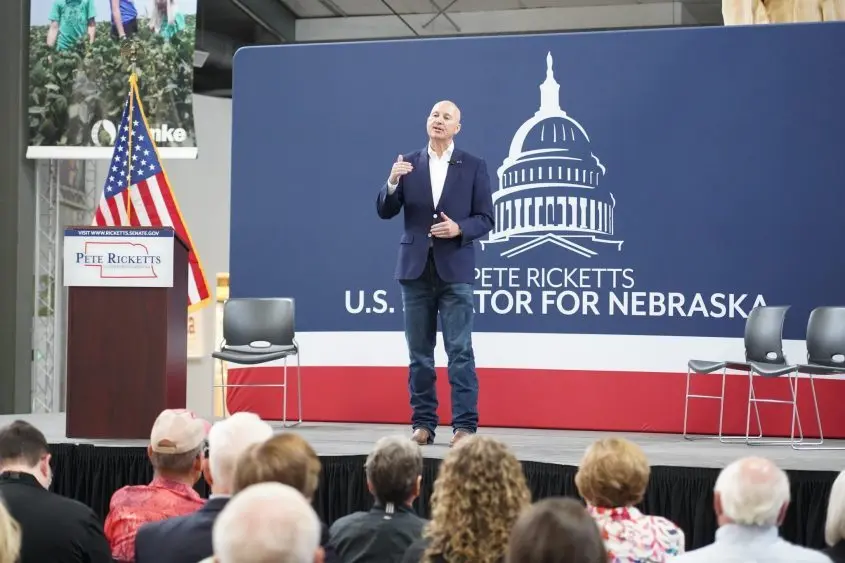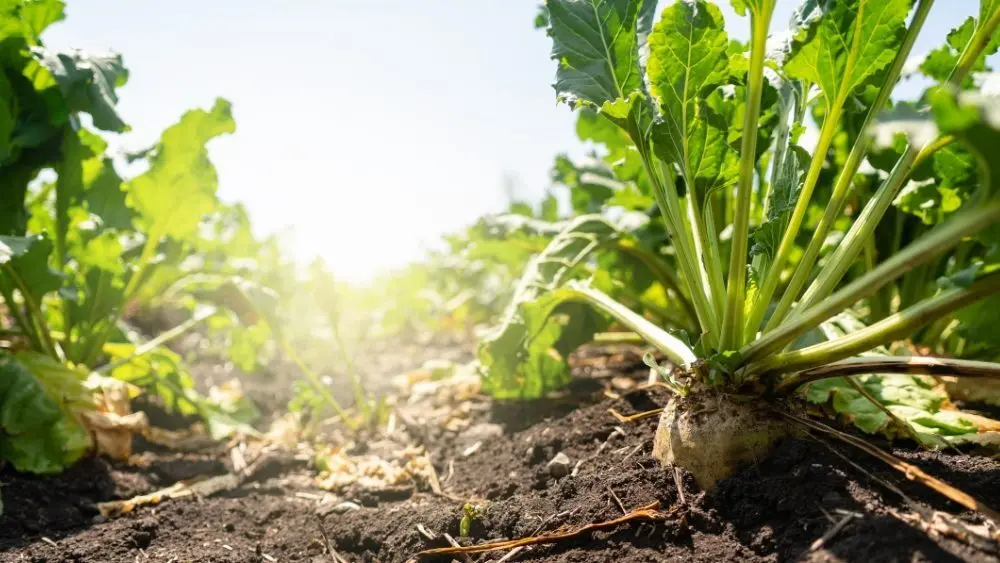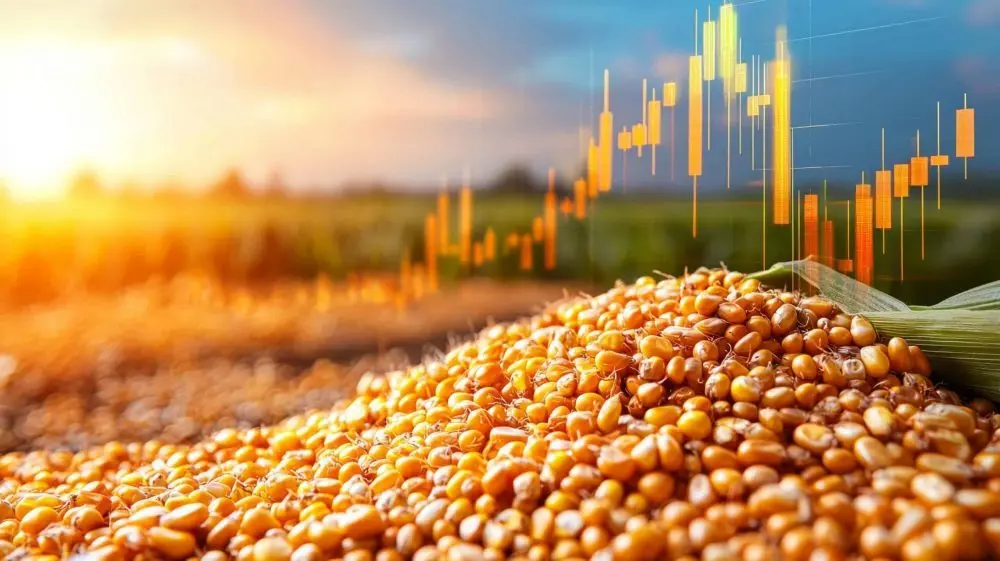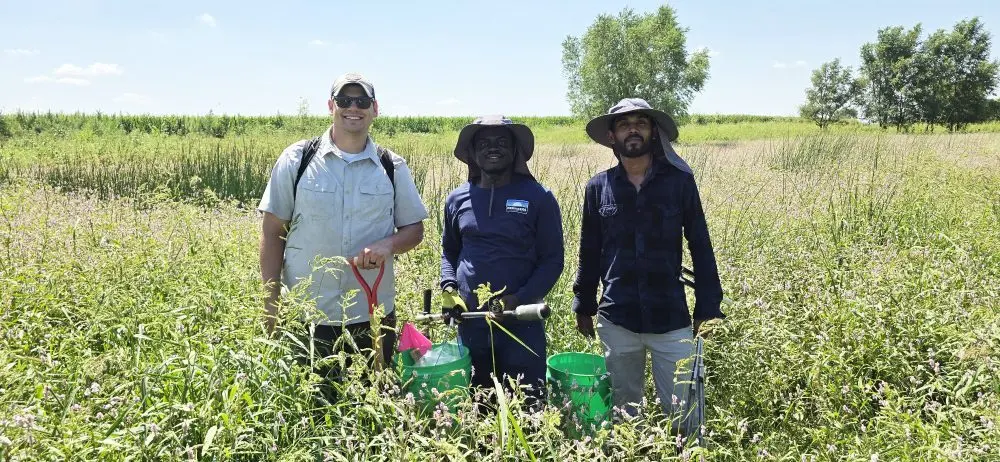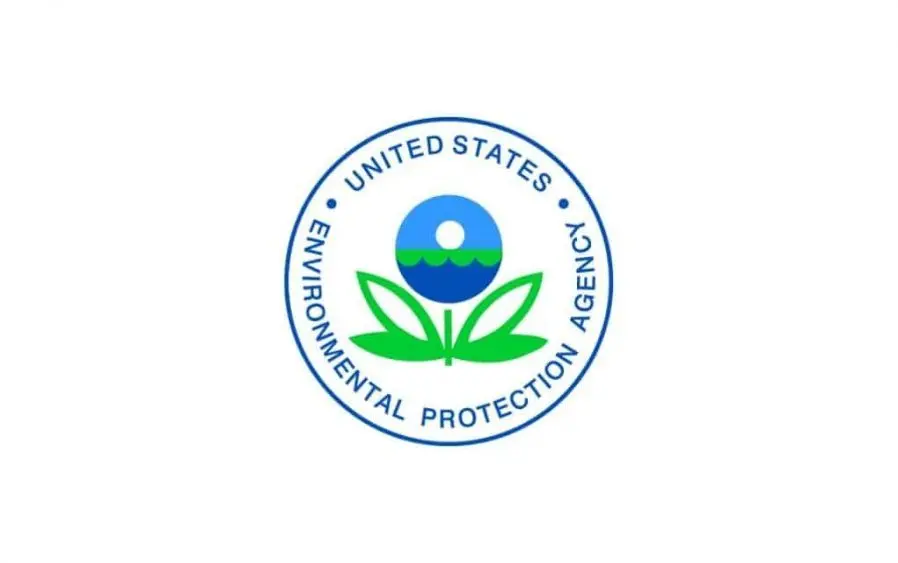
Sleepy Eye, Minnesota – At Christensen Farms in Minnesota, U.S. Environmental Protection Agency (EPA) Administrator Lee Zeldin announced a final action imposing no additional wastewater discharge regulations on meat and poultry processing facilities. This action advances the Trump Administration’s successful efforts to support a lower cost of living for American families and American farmers while protecting human health and the environment. Administrator Zeldin was joined by Christensen Farms CEO Greg Howard and U.S. Representatives Brad Finstad (R-MN-01) and Michelle Fischbach (R-MN-07) for a tour of the mill and farm following the announcement. The family-owned and operated facility oversees 145,000 sows across 44 farms creating more than 1,000 local jobs.
“The Powering the Great American Comeback initiative is about supporting Americans by reducing the cost of living and advancing economic growth while protecting our nation’s air, land, and water,” said EPA Administrator Lee Zeldin. “For the past four years, people in this country experienced the worst inflation in nearly five decades. EPA is saving billions of dollars in costs the American people would otherwise see in the prices of the meat and poultry they buy at the grocery store while ensuring the protection of human health and the environment.”
“Today’s decision reflects a commonsense approach that protects America’s meat and poultry processors and the farmers and ranchers they serve from unnecessary red tape. By rejecting this costly and burdensome rule proposal by the previous administration, the Trump Administration is ensuring that small and mid-sized meat and poultry facilities can keep their doors open, continue feeding our communities, and support good-paying jobs across rural America. This action strengthens our food supply chain while respecting the hard work of producers who are the backbone of agriculture,” said U.S. Secretary of Agriculture Brooke Rollins.
“Farmers and ranchers rely on processers to help get meat and poultry to America’s dinner tables in a way that protects our natural resources. Heavy-handed regulations that would have created serious obstacles in processing would ultimately hurt the farmers raising the meat and poultry we enjoy. Farm Bureau appreciates EPA’s reasoned approach to guidelines for meat and poultry processing facilities that protects our natural resources and our stable food supply,” said American Farm Bureau Federation President Zippy Duvall.
“This important decision by Administrator Zeldin ends a regulatory disaster that would have forced meat processing facilities to close, causing food prices to go up and hardship for livestock and poultry producers,” said Meat Institute President and CEO Julie Anna Potts. “We are grateful for the swift action of the Trump Administration to put the consumer first and eliminate burdensome regulations that destroy jobs.”
“The National Pork Producers Council applauds the Trump administration and EPA Administrator Zeldin for taking a commonsense approach on the Meat & Poultry Processing Rule. As proposed by the previous administration, this rule—which provides no environmental benefits—would have been devastating to small- and medium-sized meat processors across the country and the livestock farmers who rely on them as markets for their animals. EPA’s action today will save not only the nearly 100 local meat processors that EPA previously identified would have to close down but also the thousands of family farmers who rely on them to stay in livestock production, and it will help ensure affordable, nutritious American-grown pork can continue to be served on dinner tables across the country,” said National Pork Producers Council President Duane Stateler.
“The COVID-19 pandemic made clear the need for additional livestock processing capacity across the country. NCBA appreciates continued efforts by the administration, including EPA, to support small and regional meat processors. Costly and resource-intensive regulatory standards limit the ability of small meat processors to remain in business. We appreciate EPA’s decision to maintain existing Clean Water Act standards,” said National Cattlemen’s Beef Association President Buck Wehrbein.
“NCC appreciates EPA’s commonsense approach in regulating water quality and for recognizing that industry is already regulated under the 2004 ELGs, as well as state agencies. EPA, under the Biden administration, did not provide adequate time to allow for meaningful public comment on the proposed rule which, if it was finalized, would have resulted in numerous facility closures and major job losses nationwide. This would have led to higher production costs that would have been passed on to the American consumer – all of which are contrary to the goals of the Trump administration. We’re grateful that the agency is taking no further action on the ELG rule and remain committed to doing our part to keep our nation’s water supply safe,” said National Chicken Council Senior Vice President of Scientific and Regulatory Affairs Ashley Peterson, Ph.D.
“We appreciate EPA’s acknowledgement of our industry’s dedication to treat wastewater coming from our plants to a very high standard. EPA’s final decision signals the agency’s commitment to transparently and properly evaluate regulations for the processing community,” said U.S. Poultry & Egg Association Nath Morris.
“EPA’s determination on the effluent guidelines rule shows that current regulatory arrangements that have been built for years under the Clean Water Act are working for turkey processors, the environment, for the local communities we’ve invested in and for American consumers. Avoiding this unjustified weight allows us to continue to work with our local municipal utilities and do the right things to meet our environmental demands and ultimately ensure we keep our nation’s food supply robust and healthy,” said National Turkey Federation President & CEO Leslee Oden.
Informed by concerns expressed in public comments received on the proposed rule and a comprehensive review of the 2024 proposal, the agency has decided not to move forward with additional, burdensome Effluent Limitation Guidelines (ELGs) or pretreatment standards for this industry.
Background
On January 23, 2024, EPA published a proposed regulation to revise existing ELGs and pretreatment standards for the meat and poultry products industry. ELGs are national industry-specific wastewater regulations based on the performance of demonstrated wastewater treatment technologies (often called “technology-based limits”). The Meat and Poultry Products (MPP) industry includes facilities that engage in meat and/or poultry slaughter, further processing, or rendering. The industry also produces pet food and animal feed.
